Film critic and historian David Thomson has been writing on cinema for more than 40 years, and in that time has penned books both sprawling (1975’s A Biographical Dictionary of Film) and specific (2009’s The Moment of Psycho: How Alfred Hitchcock Taught America to Love Murder). His latest volume The Big Screen: The Story of the Movies and What They Did To Us straddles the divide. It’s an ambitious but selective history of cinema, combining an overview (which is, by Thomson’s own admission, partial) with intimate, specific studies of noteworthy filmmakers. But more than a history of cinema, this is a history of screens.
“From Muybridge to Facebook,” Thomson is wrestling with the physical thing itself throughout his exploration of the big screen, and worrying at its psychological implications. The screen can, he suggests, begin to act as a barrier between us and the real world, to the same extent that it acts as a gateway between us and a fantasy world. theartsdesk sat down with Thomson to discuss his approach to cinematic overview, the simultaneously wondrous and dangerous lure of the screen, and why he’s glad Citizen Kane didn’t top this year’s Sight & Sound poll.
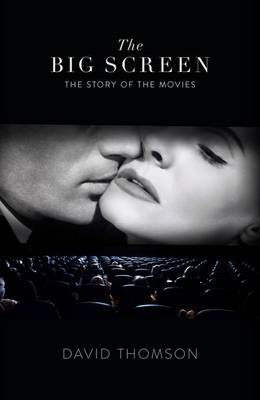 EMMA DIBDIN: When did your relationship with cinema begin?
EMMA DIBDIN: When did your relationship with cinema begin?
DAVID THOMSON: I fell in love with movies from the first time I went when I was about four, and I went whenever I could. During my teens, I kept a sort of journal writing about films I saw, which was a bargain with my mother. She was worried that I saw too many, so she said, "If you're going to see them, you've got to write about them." Which is a tremendous discipline.
It came from, very simply, an absolute fascination with what this thing was. I remember asking my parents, "How does it get there? Are there people behind the screen?" It was a magical thing, and I just loved it, although in those early years I frequently had to be taken out of the cinema in tears, because I got so moved by the film that I couldn't take it. But I still wanted to keep going. I think there really is something about the movies that is both wonderful and frightening, and I still feel that.
In this book specifically, the kernel seems to be the idea of the screen itself, and how that impacts psychologically on the viewer.
You put your finger straight away on, really, the reason why I did the book. I think for a long time the world, let alone the people who made films, thought that it was all about the imagery. And it is. But what we didn't notice, or appreciate, was that we were actually watching screens. Now, screens have proliferated, and it's so much easier to see the role screens play in our life. I think it was modelled by film, which says to you, "Here is reality, better than you've ever seen it, dreamed of it, but you can't go in." And I think it begins to make a separation between us and reality, which has become much more pronounced now.
The sheer number of films you cover in The Big Screen is pretty astonishing – did you have a set list going in, or did you just start writing and the films emerged as you went along?
I had a plan, I had a shape to the book. I knew that I had to talk about American film, but also German film, French film, Italian, British, Japanese, at least. Now, I've left a lot out. Asian film is not nearly as well covered as it could be. So I thought about those subjects, I thought about how to treat them, and I tried to pick out some films and some careers that I thought would work well, which would be reasonably familiar to the sort of person who knew a bit of film history and has seen a lot of films. The kind of person I thought would be more interested in the book.
The director is fading away - you don't think to ask who directs television, and yet television in America is at a very good stage
So I knew I had to talk about Battleship Potemkin, Eisenstein, I thought Sunrise was important because it's still so esteemed, and it's right at that cusp of silence and sound. I knew I had to talk about Kane, knew I had to talk about Hitchcock, Godard. I had a sort of shape, a form – if I was going to talk to someone about the history of cinema, these were the people I would cover. Which is a judgement call. It’s either the most important, or the best-known, or the people who most helpfully illustrate this story. Hawkes, for instances, is very good because Hawkes did what Hollywood wanted, and yet he expressed himself at the same time. So that's a very interesting test case.
And you go right up to very contemporary films, with Melancholia and Jack and Jill. How did you decide the cut-off point?
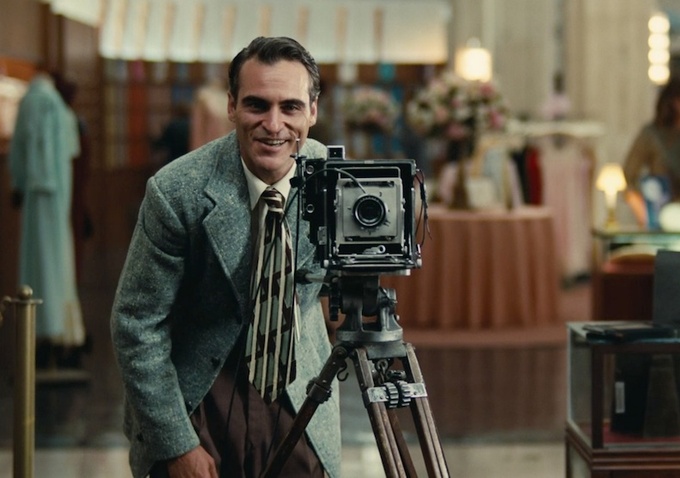 It was literally when the publisher said, "We can't remake any more pages." I passed the pages finally, I suppose in about March or April, and I was hoping I could get to see certain things in time to mention them. For example, The Master (pictured left) – I hoped enormously that would be a great film, and I'm afraid in my opinion it's not.
It was literally when the publisher said, "We can't remake any more pages." I passed the pages finally, I suppose in about March or April, and I was hoping I could get to see certain things in time to mention them. For example, The Master (pictured left) – I hoped enormously that would be a great film, and I'm afraid in my opinion it's not.
You refer in the book to Pauline Kael’s idea that you should only watch a film once, and you also say that you don’t subscribe to that view. What do you get out of watching a film more than once?
Well, it's changed with time. I mean, as a child and as a teenager and perhaps a bit longer than that, it was the realisation of a dream world about growing up. I watched the movies to see how grown-ups talked. I'm not saying that they were an accurate portrait, but it was a sort of fantasy education in how you live life, and how you deal with the opposite sex.
It's changed. I went through a stage, particularly when I was teaching, of saying, "Well, these are the great filmmakers, let us explore them as if they were Charles Dickens or Van Gogh or someone like that." The auteur theory. And now I've got to a stage where I sort of feel that every film is more like other films than anything else. Films are all alike, because the technology is more important. The director is fading away - you don't think to ask who directs television, and yet television today in America is at a very good stage. So I've become increasingly interested in the technology, and what that has done to shape the format.
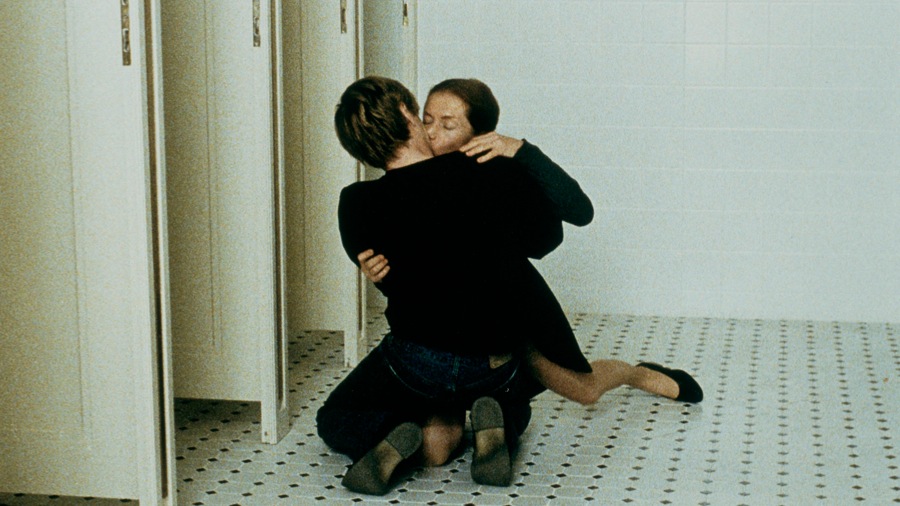 You wrote an article in Sight & Sound in 2011, making a sort of plea for Citizen Kane not to top the next Critics’ Poll. You actually wrote, "Wouldn’t it be nice if one of these other films won?" And Vertigo was one of the few you named, but you seemed very doubtful about the odds of it happening.
You wrote an article in Sight & Sound in 2011, making a sort of plea for Citizen Kane not to top the next Critics’ Poll. You actually wrote, "Wouldn’t it be nice if one of these other films won?" And Vertigo was one of the few you named, but you seemed very doubtful about the odds of it happening.
Yeah, I thought Kane would win again. I was happy to see another film win, and I was happy that Kane wasn't thrown overboard, it was still there at number two. I think it's good for Kane, because I think it had reached a point where it had been the best film for so long that young people particularly said, "I've had enough of people telling me I have to see this." So people have stopped watching it. I mean, I would have been happier still if a much more modern film had won, because there is this other element to it, that cinema should be a young person's medium. And I would have loved it if, let's say, Blue Velvet or Mulholland Drive had won. And I could argue the case that one of those should have won. Or The Piano Teacher (pictured above), say, although that's a bit grim. I think the top 10 has to be renewed.
It is bizarre when you look just at the top 20, and realise that the most recent film in there was made in 1979.
I know! That’s the sad thing. Now, you can argue that it's the truth, that nothing has been made that’s as good since then. But you know what's very interesting and I think worth bearing in mind: Kane was a flop when it opened, and Vertigo was one of Hitchcock's few flops. So it may be the films that flop today that will be top of the poll decades from now, if there is a poll. If we’re here.
You also suggest in the book that the idea of having a hierarchy, and ranking films, has become much more prevalent now than it was.
My principle has always been, if you like it, watch it. Simple as that
Yeah, I think the press, the media, whatever you want to call it, is born more into lists now. I mean, every day in America there's something like "The 10 Best Screen Kisses", "The 10 Best Car Crashes", you know. And it's a way of filling space, just as – and I don't hold this against them – but just as the purpose of that poll is to promote Sight & Sound. That's really why they do it, and they made a big push this year. Bigger than they've ever done in the past, they re-did the whole magazine.
If you were to make a list of modern classics, say, films from the last 20 or 30 years, what would be in there?
I would pick Mulholland Drive, I would put The Piano Teacher in there, I would put A Separation. I think I would put The Truman Show in. Here's a strange choice; I would put The Arbor (pictured below) in. I love that film. Another one that a lot of people would not put in - I would include Inception. I love Inception, I think one day it will be recognised as a great film.
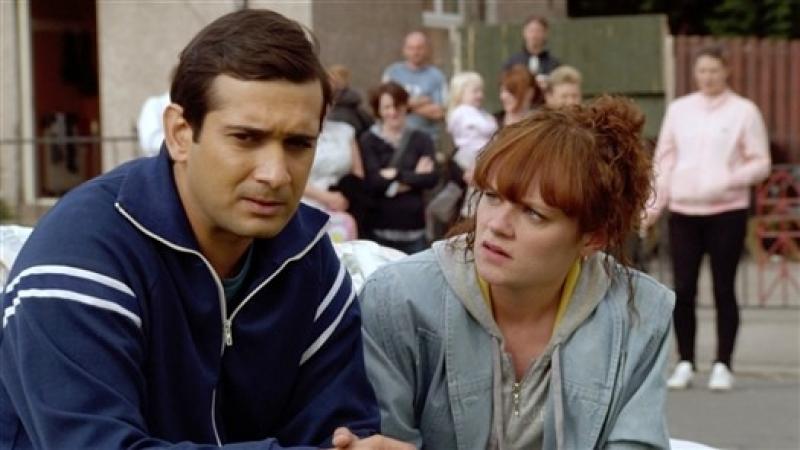 Some film critics are slight purists and, for example, don’t keep up with television, either for time reasons or ideological ones. But you refer to several TV programmes in the book – how selective are you with your viewing?
Some film critics are slight purists and, for example, don’t keep up with television, either for time reasons or ideological ones. But you refer to several TV programmes in the book – how selective are you with your viewing?
My principle has always been, if you like it, watch it. Simple as that. And from the moment I started watching television, which was a very long time ago, there were things I just loved. Like Monty Python, say – I laughed, obviously, but it was also quite clear that Monty Python was doing things to television. It was teasing television.
I also watch a lot of live sports, because I love television live events. For me certain things like Kennedy's funeral, the shooting of Oswald which was live on TV, Three Mile Island, Fukushima, Princess Diana, those things… television was made for them. I talk in the book about "Will you watch the end of the world on television?" Probably we will.
What should good film criticism do?
I think good film criticism says what you felt. I think it's really about your reaction to what's coming off the screen. Good film criticism makes people want to go and see the film, but you've got to be very careful there, because you mustn't tell them so much that you've spoiled the film. I also think it should be written in a way that the people who made the film can understand. Whether you like the film or not, there is a kind of film criticism that uses language and ideas that are clearly beyond the filmmakers. I think it came for academic reasons, people wanted to get tenure in academia teaching film. But I think that what you write as a critic should be something the director can read, or the producer or the writer. And they might not like it, they might not agree, but they could understand it. And equally I think that good film criticism should be written in a way - this is an ideal, because it's hard - but it should be written in a way that, Emma Dibdin when she's 50, and has been through this up to her neck, will understand, but Emma Dibdin when she was 18 would have understood too. That's really tough. But those are the tests, I think. And of course, it should be well written.
I always find it hard as a critic to approach films where you’re clearly not the target audience – let’s take The Twilight Saga as an example – and you may not like it, but equally clearly, the film is serving an audience and doing it well by their standards. How objective or subjective can you be?
Good question. I think that the films millions of people go to see are always worth talking about, because why is it that people love it? Now, it may be what you would call an immature response, but I remember the days when I loved the cinema like crazy, and I was very immature. It's always depended on immature audiences, so I like the challenge of writing about very pop films. And if you really have no response to it, it's hard. But one way or another, people like Kristen Stewart have a fantastic hold on an awful lot of people, and I think that's fascinating. It's like if a politician comes along – when Sarah Palin came along in America, I didn't like much about her, but it was quite clear that a lot of people really liked her, and you can't ignore things like that. You've got to sense why that is, and what that's saying about politics in our country. Popularity is no excuse for ignoring a film.
- The Big Screen: The Story of the Movies and What They Did To Us by David Thomson is available now (£25)

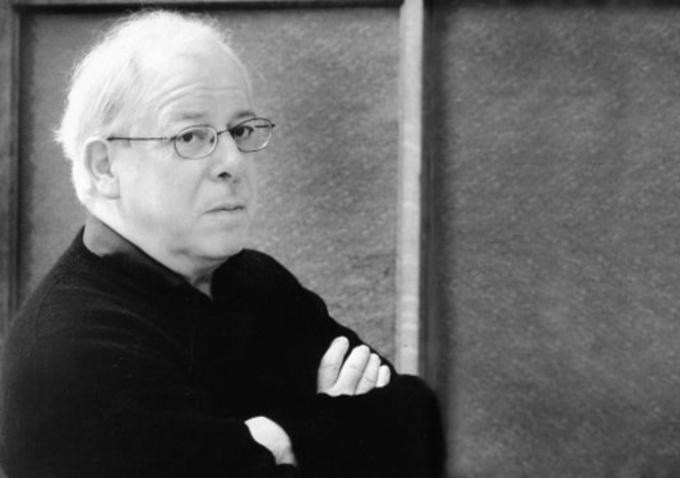













Add comment